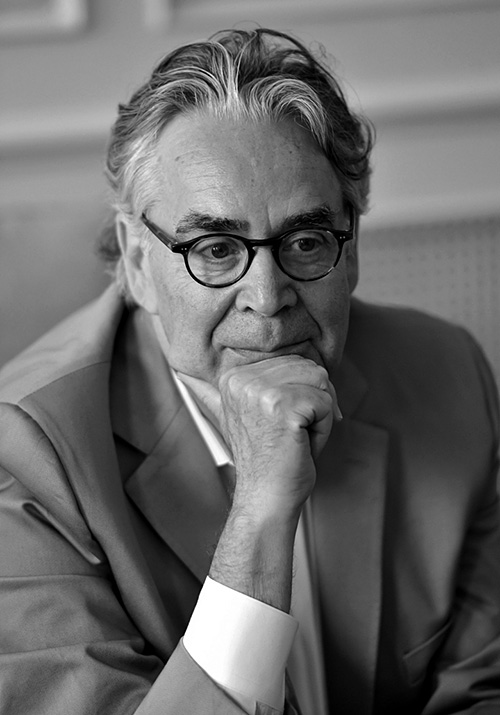

  |
|
|
||||||||||||||||||||||
|
FMS FEATURE... January 4, 2016 Spotlight on Howard Shore's Score Piano-driven chamber music propels journalism film by Jon Burlingame  For this year's much-talked-about newspaper film Spotlight, composer Howard Shore – the veteran composer who won three Oscars for his Lord of the Rings scores and whose resume ranges from The Silence of the Lambs to Hugo – has taken an approach unlike any of his predecessors. Tom McCarthy's film, which details how a team of Boston Globe reporters unearthed the truth about priests molesting boys and the ensuing coverup by the Catholic Church, has been receiving rave reviews and is a likely candidate for multiple Academy Award nominations when they are announced on Jan. 14. Shore's score is alternately propulsive, thoughtful, melancholy, questioning, much like the protagonists of the story (played by an ensemble cast including Michael Keaton, Mark Ruffalo, Rachel McAdams, Liev Schreiber and others). Its primary voice is the keyboard: often acoustic piano, sometimes Fender Rhodes or Hammond organ. "The movie is about truthfulness," says Shore, "and the piano has a certain gracefulness and honesty about it. Its essence is this black-and-white world. I thought it related well to the black-and-white, journalistic aspects of the newspaper." He began composing even before he saw any of the film, working from a script and early discussions with director McCarthy. "We talked a lot about the themes of the story," he said, eventually creating "six or seven" main themes to which he gave titles like "deference and complicity," "pain and anguish," and "pressure of the church." "Once I have the story, it tends to set the gears in motion," Shore says, helping to find "the harmony and counterpoint and the colors I'm interested in." He started in the spring and worked through the summer on what ultimately ended up as 40 minutes of score. "The harmonies are very specific for each of these themes and motifs," Shore said. "They're very interwoven. It's a chamber piece, weaving all these music ideas together into a little chamber work," he explained. In addition to piano, he employed harp, percussion, fiddle, accordion, electric bass, electric guitar, acoustic guitar and two French horns. Musically, he hints at Boston's Irish traditions, but never in an overt way: "The percussion is playing Irish drums, and there's fiddle. There are some shadings of Irish music in the score. You'd have to really listen," he adds with a laugh. Shore's music helps to move the story along. "I'm always aware of the pacing of every film I work on," he says. "I write in a way that I can put energy into the score in various subtle ways, with the harp, percussion, with acoustic guitar. There are layers of rhythmic ideas, embedded in the score. It gives it this forward motion." Shore's next big project is a concerto for guitar and orchestra for Milos Karadaglic, which he plans to finish later this summer. ©2016 Jon Burlingame |
Search
Past Features
Feature Archives
|